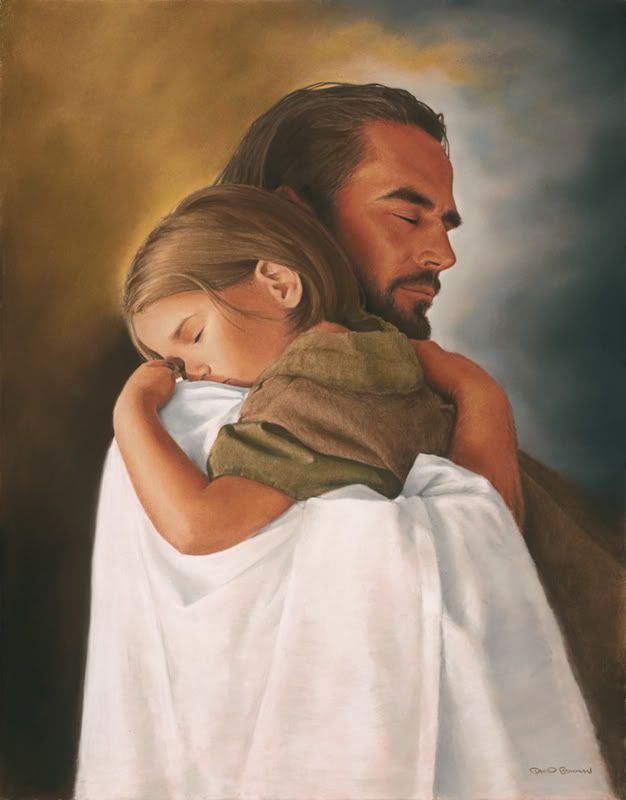 In 66 A.D. the full-scale revolt began. Jews in Jerusalem, infuriated by Roman rule that buried them with taxes and blasphemed their holy places, united, rose up and drove the oppressors out. The Romans soon returned, this time from the north, 60,000 strong. They crushed Galilee. One hundred thousand Jews were killed or enslaved. The Romans then swept south through the country and laid siege to Jerusalem. In the summer of 70 A.D. they finally breached the city walls. The temple was burned and hundreds of thousands were executed, many who had fled into the city for safety. When Jerusalem fell, the Jewish state collapsed, not to be established again until 1948. (The video above is a 59-minute, dramatized BBC version of the conquest; I found it worth watching.)
In 66 A.D. the full-scale revolt began. Jews in Jerusalem, infuriated by Roman rule that buried them with taxes and blasphemed their holy places, united, rose up and drove the oppressors out. The Romans soon returned, this time from the north, 60,000 strong. They crushed Galilee. One hundred thousand Jews were killed or enslaved. The Romans then swept south through the country and laid siege to Jerusalem. In the summer of 70 A.D. they finally breached the city walls. The temple was burned and hundreds of thousands were executed, many who had fled into the city for safety. When Jerusalem fell, the Jewish state collapsed, not to be established again until 1948. (The video above is a 59-minute, dramatized BBC version of the conquest; I found it worth watching.)
Forty years earlier, it’s Tuesday in Jerusalem, three days before Jesus’ crucifixion. It had been a day of verbal conflict in the temple courtyard as chief priests, scribes, elders, Herodians, Pharisees and Sadducees unsuccessfully tried to ambush Jesus into incriminating himself (Mark 11:27-12:37).
As he was leaving the temple, one of his disciples said to him, “Look, Teacher! What massive stones! What magnificent buildings!” “Do you see all these great buildings?” replied Jesus. “Not one stone here will be left on another; every one will be thrown down.” As Jesus was sitting on the Mount of Olives opposite the temple, Peter, James, John and Andrew asked him privately, “Tell us, when will these things happen? And what will be the sign that they are all about to be fulfilled?” (13:1-4).
Before leaving the temple, Jesus had prophetically warned many deceivers would come in his name; disciples must not be misled. Wars, earthquakes and famines would strike; disciples must not fear or presume the end is near. Deadly persecution would arise; disciples must continue to preach the gospel to all nations and endure to the end (13:5-13). Then Jesus prophesies an unthinkable coming disaster:
But when you see ‘the abomination that causes desolation’ standing where it does not belong– let the reader understand– then let those who are in Judea flee to the mountains. Let no one on the roof of his house go down or enter the house to take anything out. Let no one in the field go back to get his cloak. How dreadful it will be in those days for pregnant women and nursing mothers! Pray that this will not take place in winter, because those will be days of distress unequaled from the beginning, when God created the world, until now– and never to be equaled again. If the Lord had not cut short those days, no one would survive. But for the sake of the elect, whom he has chosen, he has shortened them. At that time if anyone says to you, ‘Look, here is the Christ!’ or, ‘Look, there he is!’ do not believe it. For false Christs and false prophets will appear and perform signs and miracles to deceive the elect– if that were possible. So be on your guard; I have told you everything ahead of time” (Mark 13:14-23).
What is “the abomination that causes desolation”? That ominous phrase comes from Daniel’s prophecy in the 6th century B.C. Here’s one of several texts referring to it . . .
“And the people of the prince who is to come
shall destroy the city and the sanctuary . . .
Desolations are decreed . . .
And on the wing of abominations
shall come one who makes desolate,
until the decreed end is poured out on the desolator.”
(Daniel 9:26,27b)
The prophecy was fulfilled in 167 B.C. when a Greek-influenced Syrian king, Antiochus Epiphanes (“God Manifest”) offered sacrifices to Greek gods in the Jerusalem temple in order to put an end to Judaism. Now in 30 A.D. Jesus picks up Daniel’s prophecy and predicts another fulfillment when another “abomination” will desecrate the temple and bring desolation to the city. Forty years later Jesus’ prophecy was fulfilled by the Romans as cited above.
I take three lessons from this.
One, tribulation marks the end of this age. False “messiahs”, wars, famines, earthquakes, and Christian persecution characterize these last days (Jesus’ Incarnation to his Second Coming). It’s obvious from history and current events that the end of this age is full of tragedy and troubles.
Beloved, do not be surprised at the fiery ordeal
that is taking place among you to test you
as though something strange were happening to you.
(1 Peter 4:12, NKJV).
“We must go through many hardships
to enter the kingdom of God”
(Acts 14:22, NIV).
Two, Jesus prophesied to warn us. Biblical prophecy isn’t given as a game or for insider-information. It’s given to encourage us and warn us. This one Jesus gave to warn his disciples, so they might be ready and kept safe from “the abomination of desolation.”
“. . .let those who are in Judea flee to the mountains.
Let no one on the roof of his house go down
or enter the house to take anything out.
Let no one in the field go back to get his cloak.
How dreadful it will be in those days for pregnant women
and nursing mothers! Pray that this will not take place in winter . . .
if anyone says to you, ‘Look, here is the Christ!’
or, ‘Look, there he is!’
do not believe it . . .
So be on your guard; I have told you everything ahead of time”
(Mark 13:14b-18,21,23)
Even after Jesus had done all these miraculous signs in their presence,
they still would not believe in him
(John 12:37).
Three, Jesus’ prophecies come true. This one certainly did. The disciples saw it. 30 A.D. prophecy. 70 A.D. fulfillment. Of course, people who disbelieve the miraculous manufacture “reasonable explanations”—like the disciples wanted us to believe their gospel so Mark composed this prophecy after Jerusalem fell!
Even after Jesus had done all these miraculous signs in their presence,
they still would not believe in him.
(John 12:37)
These are pretty dark words. Let’s leave off with words of light. Tribulation does mark these last days. Jesus gave this prophecy to warn us. And his prophecies do come true. So let’s hear his prophetic words given to encourage us, which will indeed come true (and which we’ll consider next time) . . .
“But in those days after that tribulation,
the sun will be darkened and the moon will not give its light,
and the stars will be falling from heaven,
and the powers in the heavens will be shaken.
And then they will see the Son of Man
coming in clouds with great power and glory”
(Mark 13:24-26, ESV).
AND THE ABOMINATION OF DESOLATION
WILL BE FORGOTTEN HISTORY!



 When you hear of wars and rumors of wars, do not be alarmed. Such things must happen, but the end is still to come. Nation will rise against nation, and kingdom against kingdom. There will be earthquakes in various places, and famines. These are the beginning of birth pains (13:5-8).
When you hear of wars and rumors of wars, do not be alarmed. Such things must happen, but the end is still to come. Nation will rise against nation, and kingdom against kingdom. There will be earthquakes in various places, and famines. These are the beginning of birth pains (13:5-8). those days for pregnant women and nursing mothers! Pray that this will not take place in winter, because those will be days of distress unequaled from the beginning, when God created the world, until now– and never to be equaled again. If the Lord had not cut short those days, no one would survive. But for the sake of the elect, whom he has chosen, he has shortened them. At that time if anyone says to you, ‘Look, here is the Christ!’ or, ‘Look, there he is!’ do not believe it. For false Christs and false prophets will appear and perform signs and miracles to deceive the elect– if that were possible. So be on your guard; I have told you everything ahead of time” (13:14-23).
those days for pregnant women and nursing mothers! Pray that this will not take place in winter, because those will be days of distress unequaled from the beginning, when God created the world, until now– and never to be equaled again. If the Lord had not cut short those days, no one would survive. But for the sake of the elect, whom he has chosen, he has shortened them. At that time if anyone says to you, ‘Look, here is the Christ!’ or, ‘Look, there he is!’ do not believe it. For false Christs and false prophets will appear and perform signs and miracles to deceive the elect– if that were possible. So be on your guard; I have told you everything ahead of time” (13:14-23). However . . .
However . . .







Recent Comments